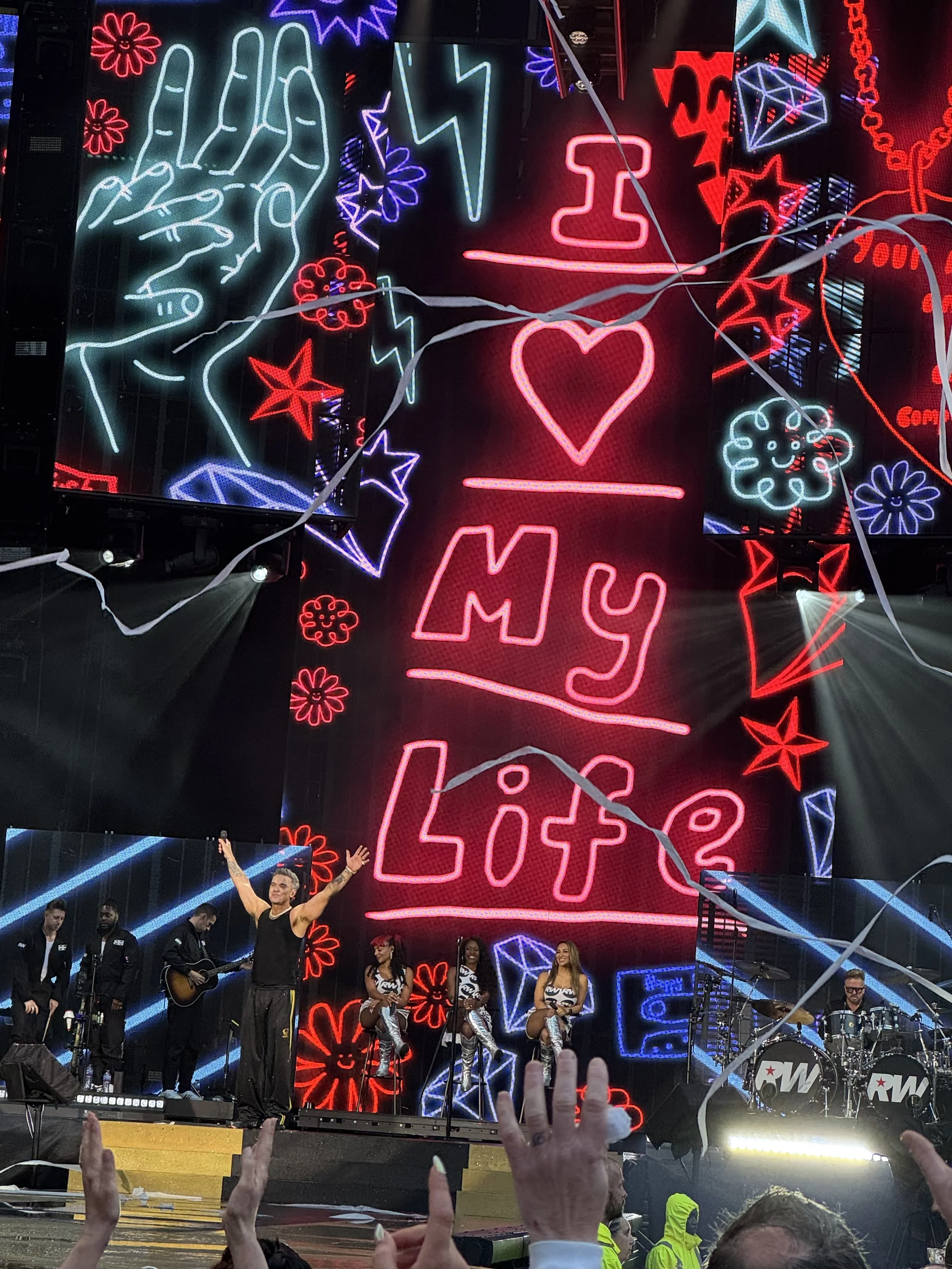The Power of Experience: Generosity, Creativity, and the Collective High
A Night at Murrayfield
Last weekend I stood in a crowd of 70,000 people at Murrayfield Stadium in Edinburgh, watching Robbie Williams deliver what can only be described as a masterclass in collective experience. On paper, it was a concert — one man singing songs to an enormous crowd. But in reality, it was something else entirely. Robbie wasn’t just performing. He was facilitating an experience — one where every single person, from lifelong fans to curious newcomers, felt seen, welcomed, and integral to the moment.
More Than a Singer
Robbie Williams isn’t just a singer. He’s an entertainer, yes — but perhaps more than that, he’s an experience giver. His songs are catchy without being overly predictable — familiar, but with the ability to surprise. Yet what truly made the night unforgettable was how freely he gave the experience away. The lyrics weren’t held tightly — they were offered, vocally and visually, encouraging everyone to sing along, to join in, to co-create the moment.
He wasn’t performing at us — he was performing with us.
Generosity as a Creative Force
There was something deeply generous in that. Robbie gave the audience his music, his energy, and — crucially — his vulnerability. He knew his power and didn’t hide from it, but he didn’t hide his insecurities either. He spoke with humility, but not from a place of defeat. He let us see him fully — talent, flaws, history, heart. And in doing so, he gave us permission to bring our full selves too.
This generosity is more than a personality trait — it’s a creative strategy. When we focus on giving our audience an experience, not just a product, we free ourselves from the constraints of perfection or expectation. We can experiment. Break rules. Create the kind of work we actually want to make.
Participation Is the Point
The most powerful moments in life — and in art — often arise from participation. From shared experience. From letting others in.
Robbie didn’t build a wall between performer and audience; he built a bridge. That’s what turned the show into a celebration, a communal high. And that’s something all of us — artists, leaders, creatives, collaborators — can learn from.
Big Ideas
This isn’t just a warm fuzzy feeling — it’s rooted in big ideas.
Jean-Paul Sartre once wrote, “Hell is other people,” but what he meant was more nuanced: when we fear judgment, others can feel like a trap. But when we engage with authenticity, when we offer and accept vulnerability, others become mirrors — not of judgment, but of connection.
Martin Buber’s concept of I-Thou relationships speaks to this too. When we meet others as whole beings — not roles, not audiences, not obstacles — we create sacred connection. That’s what Robbie did: he met us human to human.
And Hannah Arendt’s work reminds us that society isn’t built by solitary genius. It’s built in plurality — in speaking and acting together. We need each other, not just to survive, but to thrive. The stadium that night was a temporary utopia: everyone giving their all to a shared moment.
Generosity Equals Freedom
This is the paradox: the more generous we are with our work, our ideas, our presence, the more free we become. We stop performing for approval and start inviting others into creation. We stop filtering ourselves and start showing up, fully.
And the reward? Connection. Fulfillment. Joy. Creativity becomes a conversation, not a monologue.
Let’s Be Experience Givers
Whether we’re on stage, in rehearsal, around a table, or just going about our day — we all have the power to be experience givers. To make others feel included. To open up a little. To co-create meaning.
Robbie Williams reminded me that night: if we can give others an experience, we give ourselves the freedom to be bold, generous, and unapologetically ourselves.
Let’s not just create — let’s invite. Let’s share. Let’s participate.
Because when we do, we don’t just make great work.
We build something greater than ourselves.

